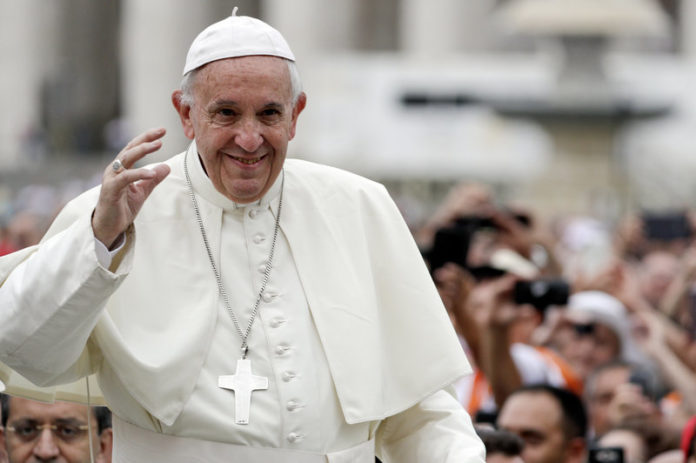Pope Francis has introduced a new pathway to Catholic sainthood, recognizing those who sacrifice their lives for others.
The new category, introduced in an official letter from the pope on Tuesday, is “one of the most significant changes in centuries to the Roman Catholic Church’s saint-making procedures,” Reuters reports.
Previously, gaining consideration for sainthood in the Catholic Church took only three routes: martyrdom (dying for your faith); living a life of heroic, Christian values; or having a saintly and devout reputation. One of the most well-known figures to take one of those paths in recent times was humanitarian Mother Teresa, who was canonized as Saint Teresa of Calcutta in 2016. The process of becoming a saint begins after an individual’s death.
According to the Vatican’s official news service, the new category has five main criteria:
The category added Tuesday, called an oblatio vitae or a “free offering of one’s life” as described by the Vatican, involves people who freely accept an imminent death for the good of others.
The new category has five main criteria, the Vatican said:
- The individual must freely and voluntarily offer their life in the face of “a certain and soon-to-come death”
- There must be a “close relation” between “the offering of one’s life and the premature death of the one who offers it.”
- The person must show Christian virtues, at least to an ordinary extent, before and after offering their life.
- They must have a “reputation for holiness” at least after their death.
- They must have performed a miracle. This is a major difference from the “martyrdom” category, which does not require a miracle.
Archbishop Marcello Bartolucci, secretary of the Vatican Congregation for Saints’ Causes, said that this is intended “to promote heroic Christian testimony, (that has been) up to now without a specific process, precisely because it did not completely fit within the case of martyrdom or heroic virtues,” according to Catholic News Service.
The current categories are insufficient “for interpreting all possible cases,” Bartolucci added.
The pope’s letter announcing the new category is called “Maiorem hac dilectionem,” which is taken from this passage in the Gospel of John: “Greater love than this no man hath, that a man lay down his life for his friends.”
According to The Associated Press, “examples of people who might fall into that category include those who take the place of someone condemned to death or expectant mothers with fatal diseases who suspend treatment so their babies can be born.”
“They are worthy of special consideration and honor, those Christians who, following in the footsteps and teachings of the Lord Jesus, have voluntarily and freely offered their lives for others and have persevered until death in this regard,” Francis wrote in the letter, according to the Catholic News Agency.
Pope Francis made news recently when he issued a letter in mid-June saying all bread used during communion must have at least some gluten, a naturally occurring protein in wheat, which is common in breads, pastas, cakes and cereals.















